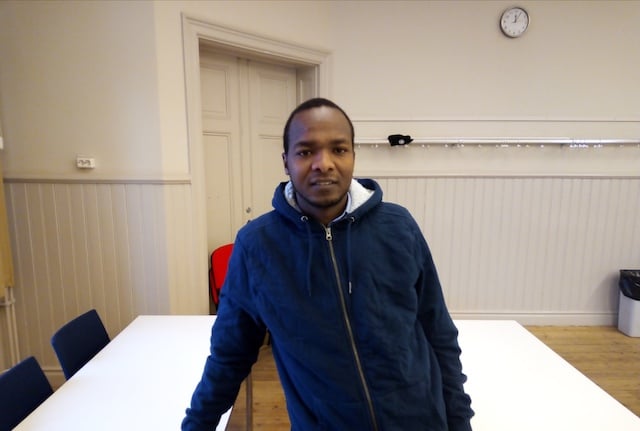Sweden is an innovation powerhouse. It has been ranked the most innovative country in Europe for the third year in a row, and is the second most innovative in the world according to the Global Innovation Index, having been in the top three since 2008.
It has been voted the best country for business for 2017, is home to established tech companies such as Spotify, Klarna, Mojang, Truecaller, and King, and has attracted global giants like Google and Amazon. It is no surprise, then, that the Swedish capital, Stockholm, is considered the second best place in Europe for startups.
To learn more, SI News Service went to the 2017 STHLM TECH FEST, the premier mix and mingle event of Stockholm’s startup scene, to check out the conversations at the forefront of technological innovation in Sweden and beyond.
Industry leaders had plenty to say about innovation in Sweden today, and the consensus was there is a great environment for growth in the tech sector.
“There is a lot of infrastructure which helps start-ups strive here, and also helps big and small companies work together,” said Sandor Albrecht, Research Director at Ericsson and Head of Ericsson Garage.
A helping hand
Cooperation and dialogue between big and small companies is something quite important in Sweden as well.
The openness and willingness of established industry giants to support and cooperate with newcomers to the scene is one of the drivers of Swedish innovation.
Albrecht highlighted the importance of “having the right conversations with the startups”,
Meanwhile, Ada Nilsson, from the Swedish Energy Agency (Energimyndigheten), added the events like TECH FEST – held annually in September in the Swedish capital – were key “to being in touch with new innovations, networking, and to let everyone know what we do and how we can help.”
 Mackenzie Kozut, Global Startup Evangelist at Amazon Web Services talks about Artificial Intelligence (AI). Photo: SI News
Mackenzie Kozut, Global Startup Evangelist at Amazon Web Services talks about Artificial Intelligence (AI). Photo: SI News
This helping hand that big corporations and organisations lend to startups is, in many cases, money.
Funding is essential for development, and Sweden knows it.
The Swedish Energy Agency has special funding programmes, as Nilsson explained: “a lot of our resources go to research and development, but we also have a special fund for new innovations in the sector”.
Commercialising new ideas
This special fund has helped 85 companies in the sector so far, providing support totalling 684 million kronor so far – an average of 8 million kronor per company. It’s part of a strategy to help not only foster innovative ideas but to actually commercialise them.
The Swedish Energy Agency is not alone in this.
There are many organised funds concerned with long-term innovation in Sweden, including established networks connecting organisations, businesses, and academic institutions that foster research and development in many different areas.
Some of these networks include the Knowledge Foundation (KK-stiftelsen), fostering the bonds between academia and industry and stimulating Swedish competitiveness; the Swedish Foundation for Strategic Research (SSF), which focuses on natural sciences, engineering and medicine; the Swedish Governmental Agency for Innovation Systems (Vinnova), with a focus on information and communication technology (ICT), biotechnology, materials, transportation, production, and working life; and the Swedish Agency for Economic and Regional Growth (Tillväxtverket), fostering sustainable and competitive businesses across Sweden.
The Swedish government also helps – a lot. Sweden’s investment in research and development have been consistently over 3 percent since 1997; for comparison, the EU average for R&D expenditure is just over 2 percent of GDP, and its goal is to increase investments to 3 percent of GDP by 2020.
'Believe in yourself'
Sweden is way ahead of the curve. And in a country so committed to fostering innovation and development, business is booming: last year alone, Swedish start-ups attracted $1.4 billion in growth capital, the highest amount ever in the country.
Ari Järvelä, Head of data-driven businesses at Tieto highlighted that, “Sweden is doing fantastically. There is a fantastic Fintech start-up scene, as well as established companies on a global scale. There is a lot of good stuff happening in Sweden.”
He highlighted Fintech and healthcare as great innovation sectors in the country.
When asked to deliver words of welcome to NFGL members, the message was loud and clear:
“Come here, it’s a very open environment, they welcome everybody. It doesn’t matter where you come from, if you have a great idea, you can get funding here,” said Albrecht.
“Believe in yourself,” said Järvelä. “Nowadays, if you have a good tech idea, there are so many companies or universities that are more than willing to collaborate with you. So contact us and surely we can help each other”.



 Please whitelist us to continue reading.
Please whitelist us to continue reading.